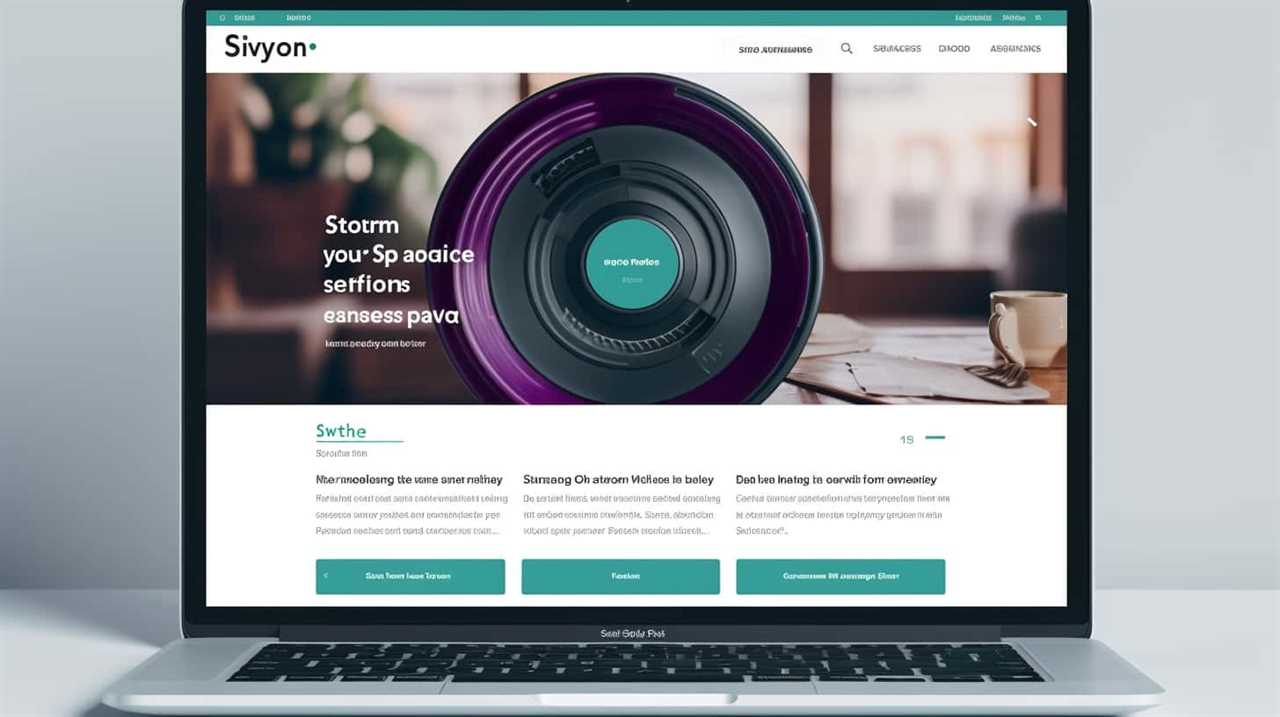Aiming to boost the presence of your neighborhood business and draw in additional customers? Your search ends with Local Entity SEO.
This powerful strategy will help you optimize your online presence, making your business more visible in local search results. By leveraging techniques like optimizing your Google My Business listing and creating locally relevant content, you can increase your rankings and drive targeted traffic to your website.
Local Entity SEO is a must for businesses that rely on attracting customers from a specific geographic area. The increased visibility and targeted traffic it provides can make a significant impact on your bottom line.
So, if you’re ready to take your local business to the next level, it’s time to embrace Local Entity SEO.

Key Takeaways
- Entities are interconnected and have positions on a vector graph, influencing their rankings in search results.
- Local Entity SEO techniques include optimizing content with locally targeted keywords, establishing a local entity through Google My Business, building backlinks from other entities in the same location, and incorporating structured data like local business schemas.
- Google My Business optimization involves ensuring the accuracy of address details, selecting the appropriate business category, utilizing Google Posts, including high-quality photos and videos, and encouraging customer reviews.
- Local Entity SEO helps businesses stand out and attract more customers by optimizing their online presence, increasing visibility in local search results, and driving targeted traffic.
What Are Entities in Search
Entities in search are the singular, well-defined, and distinguishable things or concepts that Google uses to better understand words and concepts. When you search for something on Google, it goes beyond just matching keywords. It looks for entities associated with those keywords to provide you with the most relevant results.
Entities aren’t just individual words, but they can also be phrases or even entire concepts. They’re interconnected and have positions on a vector graph, which helps search engines like Google understand their relationships and relevance.
For local search, entities play a crucial role. When you search for a local business or service, Google uses entity data to determine the most relevant results based on your location. It takes into account factors like proximity, reviews, and other information related to the entity.
Entity SEO is an approach that focuses on optimizing your website and content to improve its visibility in search results. By understanding the importance of entities and incorporating them into your SEO strategy, you can increase your chances of appearing in relevant local searches.

How Google Ranks Entities
To understand how Google ranks entities, you need to consider the factors that influence their rankings. Google uses a variety of ranking signals to determine the position of entities in search results, including local entity SEO. These signals help Google assess the relevance and importance of an entity to a specific query.
One important factor is the relatedness of concepts on a vector graph. This means that Google looks at how interconnected entities are and uses this information to determine their rankings. Additionally, Google considers the notability of an entity within its niche. Entities that are considered more important or influential in their industry are more likely to rank higher in search results.
Contribution is another crucial ranking factor. Google analyzes an entity’s impact within its industry to assess its relevance to a user’s search query. Finally, Google takes into account the prizes an entity has received, such as awards or accolades. These external recognitions contribute to an entity’s ranking position.
Understanding how Google ranks entities is essential for effective local entity SEO. By optimizing your website and content to align with the ranking signals Google uses, you can improve your chances of appearing in local results and attracting more relevant traffic to your website.

Transferring Entities to Local SEO
When transferring entities to local SEO, you should focus on optimizing your website and content to align with the ranking signals used by Google. By doing so, you can improve your chances of ranking higher in local search results and attracting more local customers. To help you understand how to transfer entities to local SEO effectively, here are some key factors to consider:
| Ranking Factors | Optimization Tips |
|---|---|
| Relevance | Optimize your content by including locally targeted keywords, mentioning local landmarks, and geographical entities. This will help Google understand the relevance of your website to local search queries. |
| Distance | Establish your local entity through Google My Business (GMB) and ensure that your address and location details are accurate. This will help Google determine the proximity of your business to the searcher’s location. |
| Prominence | Strengthen your local entity relationships by building backlinks from other entities in the same location. This will increase the prominence of your business in the local SEO ecosystem and improve your local search rankings. |
| Structured Data | Incorporate structured data on your website, specifically local business schemas, to provide Google with detailed information about your business, such as address, opening hours, and social media profiles. |
| On-Page Optimization | Refine your on-page SEO by internally linking relevant pages and including locally targeted keywords in your content. This will enhance the relevance and prominence of your local entity within your website. |
Google My Business
To optimize your Google My Business (GMB) listing for SEO and local ranking factors, there are several key points to consider.
First, ensure that your physical address is accurate and up-to-date, as this greatly impacts your GMB ranking.
Additionally, selecting the appropriate business category is crucial for maximizing your listing’s optimization.

Lastly, make use of Google Posts to provide real-time information about your entity, and include high-quality photos and videos to showcase an active and engaging presence.
Optimizing GMB for SEO
You can optimize your GMB listing for SEO by implementing essential strategies.
First, conduct thorough entity research to understand how your business is perceived online. Use entity extraction tools to identify relevant keywords and phrases that should be included in your GMB listing.
Pay attention to entity metrics like reviews, ratings, and engagement to gauge user satisfaction and improve your listing accordingly.

Utilize the knowledge graph to provide accurate and up-to-date information about your business.
Optimize your content by incorporating keywords in the business description, posts, and Q&A section.
Add high-quality photos and videos to showcase your products or services.
Local Ranking Factors
As you optimize your Google My Business (GMB) listing for local SEO, it’s important to understand the local ranking factors that influence your GMB ranking. Here are the key factors to focus on:

- Business Profile: Ensure that your GMB listing reflects accurate and comprehensive information about your brand. This helps Google understand your business better and improves your local ranking.
- Physical Address: The location of your business plays a significant role in GMB ranking. Make sure your address is correct and consistent across all platforms.
- High-Quality Media: Including high-quality photos and videos on your GMB listing shows that your business is active and engaging. This can positively impact your local ranking.
- Customer Reviews: Encourage your customers to leave reviews on your GMB listing. Positive reviews not only attract potential customers but also enhance your local ranking.
Reviews
When it comes to local entity SEO, reviews play a crucial role in determining your rankings. The rating and quantity of reviews have a significant impact on your SEO performance, so it’s important to encourage satisfied customers to leave positive feedback.
Additionally, responding to negative reviews in a professional and timely manner can help mitigate their impact on your reputation and SEO rankings.
Rating Impact on SEO
Reviews significantly impact the SEO rankings of local entities, with Google reviews playing a particularly influential role. Here’s why you should pay attention to your ratings on Google:
- Google reviews have a direct impact on your local rankings, affecting your visibility on Google Maps and in the local pack.
- Positive reviews can improve your online presence, attracting more potential customers to your local business.
- Negative reviews can harm your reputation and lower your rankings, making it harder for customers to find you.
- Google’s Knowledge Graph and knowledge panel display your rating and reviews prominently, influencing user perception and trust.
- Having a high rating and positive reviews can help you outrank your competitors for targeted keywords in local search results.
Responding to Negative Reviews
To effectively manage negative feedback and maintain positive relationships within the industry, it’s crucial for local entities to promptly and professionally address any unfavorable reviews they receive. Responding to negative reviews not only shows that you value your customers’ feedback, but it also has a direct impact on your local SEO rankings.

Research has shown that reviews account for 16% of the importance for the local pack and 6% for local organic rankings. Google reviews, in particular, carry the most weight when it comes to rankings. By addressing negative feedback, using targeted language and incorporating relevant keywords, you can improve your chances of ranking higher in Google’s Knowledge Graph and search results.
On-Page Optimization
For effective local entity SEO, you should focus on optimizing your on-page content. On-page optimization plays a crucial role in improving your local pack and local organic rankings. By understanding the importance of on-page SEO and taking the necessary steps to optimize your content, you can enhance your visibility in search results and attract more relevant traffic to your website.
Here are two key aspects of on-page optimization that you should consider:
- Optimizing for Entities:
- Identify the different entity types that are relevant to your business and incorporate them strategically into your content.
- Use search terms that are related to these entities to optimize your on-page content and improve your chances of ranking higher in search results.
- Relationships between Entities:
- Establish connections between your business and other entities by linking to authoritative sources and providing valuable information about related topics.
- Leverage machine learning algorithms to understand the relationships between entities and create content that aligns with user search intent.
Local Links
When it comes to local SEO, there are two key points to consider: link building strategies and optimizing anchor text.

Building backlinks from entities in the same location can greatly enhance your local rankings. This means that you should focus on getting links from local businesses, organizations, or directories. These backlinks tell search engines that your entity is relevant and trusted within the local area.
In addition to building backlinks, optimizing anchor texts is another important factor in local SEO. Anchor text is the clickable text in a hyperlink. By optimizing anchor texts with local keywords or location-specific phrases, you can strengthen the relationship between your entity and local search results. This helps search engines understand the context of your website and improves its visibility in local searches.
Link Building Strategies
You should prioritize local link building strategies to enhance your local entity SEO. Building local links is essential for improving your search rankings and increasing your visibility in the local pack and organic search results.
Here are two effective strategies to help you get started:

- Utilize local landmarks and geographical entities in your content: Incorporating references to local attractions, landmarks, and popular places can help establish relationships with other entities in your area. This can lead to valuable backlinks from local businesses and organizations.
- Optimize your anchor text: When building local links, it’s important to optimize your anchor text by using relevant keywords and phrases that describe your business and location. This will strengthen the relationship between your entity and the linked page, improving the authority and relevance of your backlinks.
Importance of Anchor Text
Optimizing anchor text in local links is crucial for enhancing local entity SEO. Anchor text serves as a signal to search engines about the relevance and context of the linked page. When it comes to local SEO, anchor text plays a vital role in establishing connections between entities within the same location. By using specific anchor texts that include location keywords, you can strengthen the association between your business and its local community.
To better understand the importance of anchor text in local links, consider the following table:
| Anchor Text | Impact on Local SEO |
|---|---|
| Location-specific keywords | Helps Google associate your business with a particular location, improving local pack and organic rankings |
| Brand name | Reinforces your business’s identity and can contribute to building brand authority |
| Relevant keywords | Provides additional context about your business and can help improve rankings for specific services |
By optimizing anchor text in local links, you can enhance your business’s visibility in Google’s Knowledge Graph and improve its unique ID in the local ecosystem. This, in turn, will positively impact your local SEO rankings and optimize your overall online presence.
Now, let’s dive into the next section about ‘behavioral signals’ and explore their significance for local entity SEO.

Behavioral Signals
To improve your local entity SEO, it’s essential to understand the significance of behavioral signals in influencing your rankings. Behavioral signals, such as click-through rates and conversions, play a crucial role in determining your position in Google’s local pack and local organic search results.
Here are some key points to keep in mind:
- Click-through rate (CTR): A high CTR indicates that your listing is appealing to users and can positively impact your rankings. Make sure to create an attractive and eye-catching GMB listing to increase the probability of button clicks.
- Conversions: Phone call clicks, direction clicks, bookings, and reservations are considered conversions and contribute to behavioral signals. Encourage users to take these actions by providing clear and easy-to-find information.
Additionally, there are offline factors that can influence behavioral signals:
- Real-world marketing and events: Offline popularity signals can impact your online visibility. Promote your business through events and real-world marketing to increase your visibility and attract more users.
- Social media presence: Active social profiles and mentions indicate an active and talked-about entity. Engage with your audience on social media platforms to enhance your online presence and improve your behavioral signals.
Understanding the importance of behavioral signals and incorporating strategies to improve them can greatly enhance your local entity SEO. By providing a positive user experience and engaging with your audience both online and offline, you can increase your chances of ranking higher in Google’s search results.

Citations
How do citations impact your local entity SEO and contribute to your rankings in Google’s local pack and local organic search results?
Citations play a crucial role in boosting your local entity SEO and improving your rankings in Google’s local pack and local organic search results. When it comes to local SEO, citations are mentions of your business’s NAP (Name, Address, Phone number) on other platforms, such as online directories, review websites, and social media platforms. These citations provide additional information about your business and help Google’s Search and Google’s Knowledge Graph understand and validate your business’s existence and location.
The number of citations your business has on platforms other than your website is a key factor that Google considers when determining your local pack and local organic rankings. The more citations you have, especially from authoritative and relevant sources, the better your chances of ranking higher in local search results.
Consistency in your NAP information across all citations is crucial for local SEO. You need to monitor and ensure that your business’s name, address, and phone number are consistent and accurate across all platforms. Inconsistent NAP information can confuse search engines and negatively impact your rankings.

Building citations is an essential part of your digital marketing and approach to SEO. By obtaining citations from reputable platforms, you can establish credibility and trust with search engines, which can lead to higher rankings in Google’s local pack and local organic search results. So, make sure to invest time and effort in building citations for your business to improve your local entity SEO and increase your visibility in local search results.
Personalization
By personalizing your local entity SEO, you can cater to individual user language, location, and search history for enhanced search results. Personalization is a crucial aspect of local entity SEO, as it allows you to tailor your optimization efforts to meet the specific needs and preferences of your target audience.
Here are two key reasons why personalization is important in local entity SEO:
- Improved User Experience: When you personalize your local entity SEO, you’re able to provide users with search results that are relevant to their specific location, language, and search history. This improves their overall experience and increases the likelihood of them finding the information they’re looking for quickly and easily.
- Increased Visibility and Rankings: Google takes into account personalization factors when determining search rankings. By optimizing your content and keywords to align with user preferences and behaviors, you can improve your chances of ranking higher in search results. This increased visibility can lead to more organic traffic and ultimately, more conversions for your business.
Social Signals
Utilizing active social profiles and mentions is a key strategy to boost local entity SEO, as they indicate an engaged and talked-about entity in the local SEO context. Social signals may not have a significant impact on local pack and local organic rankings, but they can still play a role in enhancing your online presence.

To understand the importance of social signals in local entity SEO, let’s take a look at the following table:
| Social Signal | How it can help Google? | How people use it? |
|---|---|---|
| Active profiles | Signals an active and engaged entity | To stay updated with the latest news and updates from the entity |
| Mentions | Indicates that people are talking about your entity | To recommend or share information about the entity |
| Useful content | Provides valuable information to users | To learn more about the entity and its offerings |
By keeping your social accounts active, communicating with your audience, and offering useful content, you can positively impact social signals. Connecting your social profiles to your website through schema markup can also enhance your entity’s online presence. In fact, social profiles can even serve as a website if you don’t have one, underscoring the significance of social signals in local entity SEO.
Proximity
To improve your local entity SEO, it’s important to consider the factor of proximity and its impact on search rankings. Proximity plays a crucial role in determining how visible your business is to potential customers.
Here are a couple of emotional responses that proximity can evoke:

- Frustration: When your business isn’t ranking well due to proximity, it can be frustrating to see your competitors appearing at the top of search results. You may feel like you’re missing out on valuable opportunities to connect with local customers.
- Excitement: On the other hand, if your business is ranking high in local search results, you can feel a sense of excitement and accomplishment. Being at the top of the search rankings means more visibility, more traffic, and ultimately more customers walking through your doors.
To improve proximity and boost your local entity SEO, consider the following strategies:
- Optimize your Google My Business listing: Make sure your address is accurate and up-to-date. This will help Google understand your location and improve your chances of appearing in local search results.
- Build local links: Seek out opportunities to get backlinks from other entities in your area. These local links act as external signals that validate the relevance and proximity of your business, improving your SEO results.
To Sum It up
To further enhance your local entity SEO, it’s important to summarize the key strategies discussed thus far.
First and foremost, make sure to optimize your Google My Business (GMB) listing. This includes selecting the most relevant business category and ensuring that your physical address has a positive impact on your ranking. Reviews and on-page optimization are also crucial factors that influence your local pack and local organic rankings. Pay special attention to Google reviews, as they hold the most weight in rankings.
Building entity relationships is another important aspect of local SEO. This can be achieved through content optimization and local links. By providing valuable and relevant content, you help Google understand the different local entities associated with your business. Photos and videos can also enhance your local entity SEO by providing visual context to your business.

Additionally, external signals like structured data, behavioral signals, citations, personalization, and social signals play a significant role in local SEO. These signals help Google determine the relevancy and credibility of your business in relation to a specific location.
In summary, to optimize your local entity SEO, focus on:
- Optimizing your GMB listing
- Obtaining positive reviews
- Building entity relationships through content and local links
- Leveraging external signals to enhance your rankings.
Frequently Asked Questions
What Is an Entity in Seo?
An entity in SEO is a singular, unique concept that Google uses to understand words and concepts better. Google ranks entities based on their relatedness, notability, contribution, and prizes.
Relatedness is determined by interconnectedness on a vector graph. Entities are crucial in modern SEO strategies as they influence rankings through their relationships and relevance to search queries.

Understanding the ranking factors of entities, such as notability, contribution, and prizes, is essential for effective SEO strategies.
What Is Local SEO Agency?
A local SEO agency is a specialized company that helps businesses optimize their online presence to attract more local customers. They focus on improving visibility and brand awareness in local searches.
For example, imagine you own a small bakery and want to increase foot traffic. A local SEO agency can optimize your Google My Business listing, gather local citations, and build backlinks from other local entities, all to boost your bakery’s visibility and attract more local customers.
What Is SEO for Local Business?
SEO for local businesses focuses on optimizing your online presence to attract more local traffic, increase visibility, and boost brand awareness. It involves strategies to improve local rankings and drive targeted traffic to your business.

Factors like relevance, distance, and prominence play a crucial role in local SEO. Google My Business is essential for direct communication with Google’s entity database.
Reviews, local links, structured data, and other signals also contribute to the success of your local SEO efforts.
What Are Local Listings in Seo?
Local listings in SEO are the online business listings that show up in search results for local searches. They’re crucial for local businesses because they boost visibility and attract local traffic.
Did you know that 46% of all Google searches have local intent? Optimizing your local listings on platforms like Google My Business is essential for improving your visibility in local searches and attracting potential customers.

Conclusion
You’ve learned about the importance of Local Entity SEO in improving the online visibility and rankings of local businesses.
Did you know that 97% of consumers search for local businesses online? This statistic highlights the significance of optimizing your online presence to reach potential customers in your area.
By implementing Local Entity SEO strategies such as optimizing your Google My Business listing and leveraging reviews and social signals, you can attract targeted traffic and boost your business’s success.










